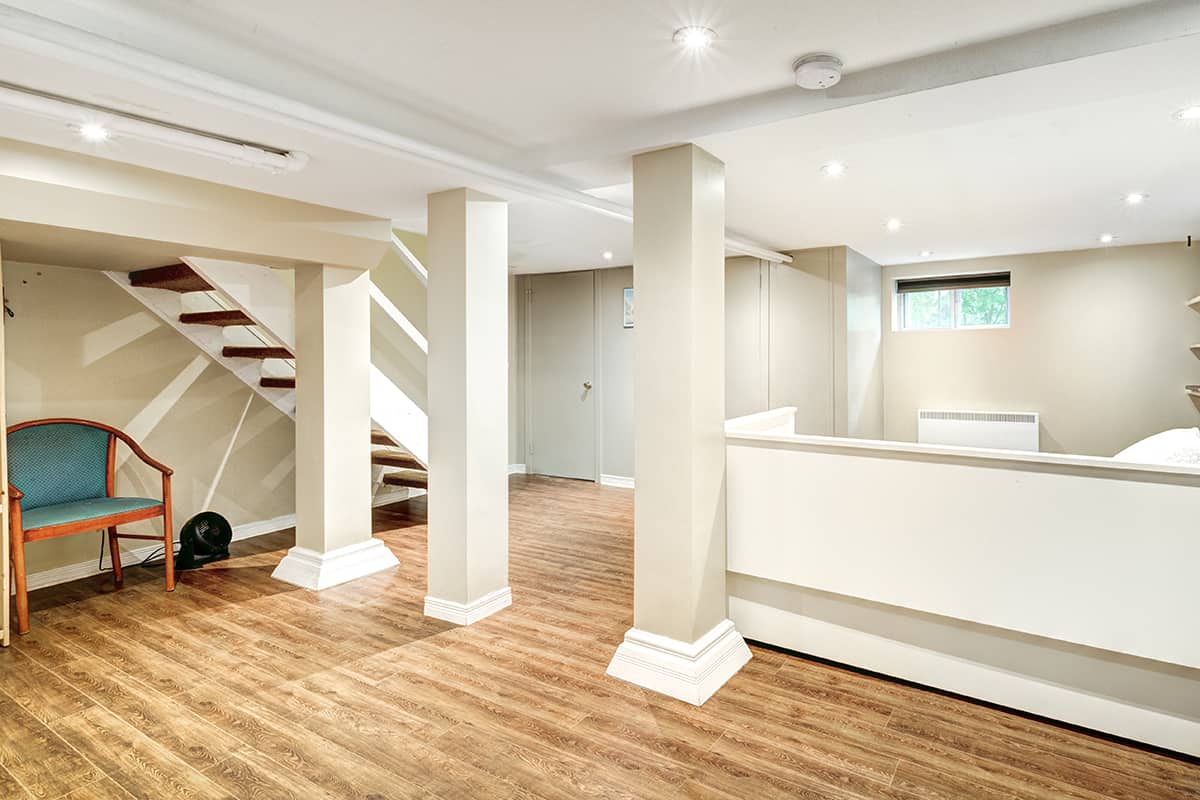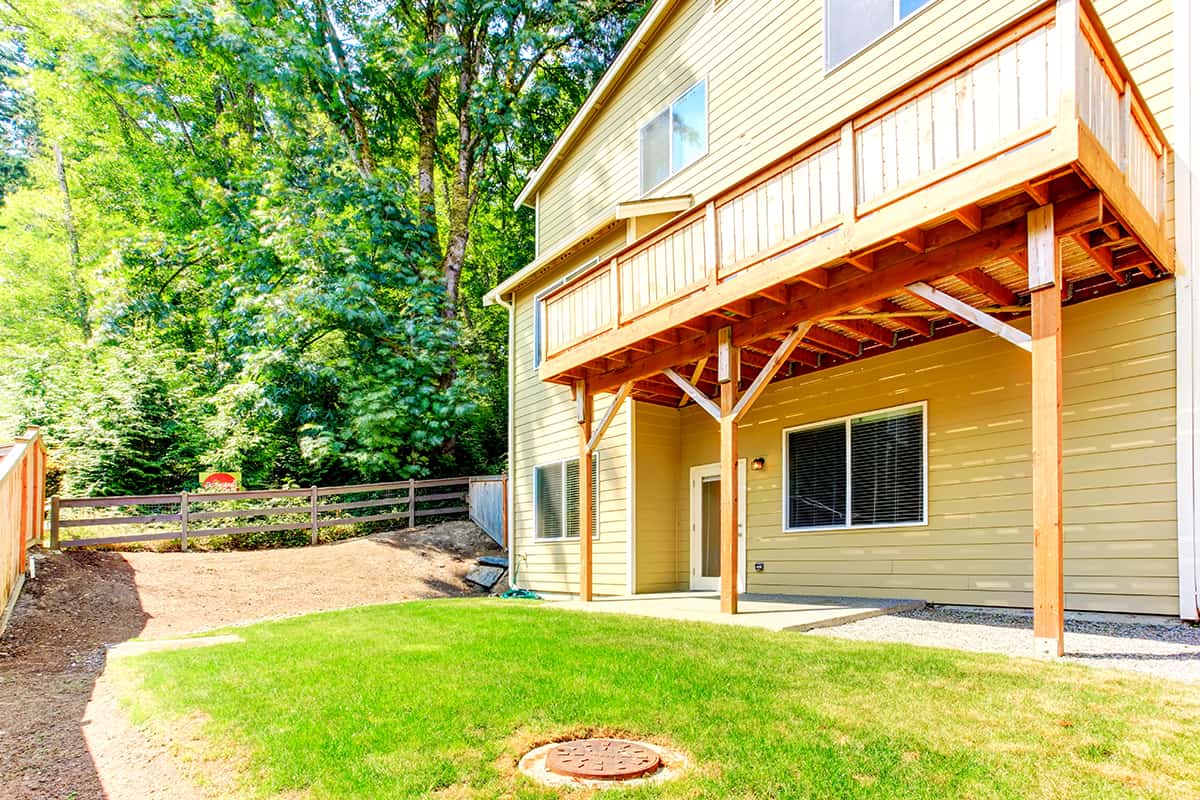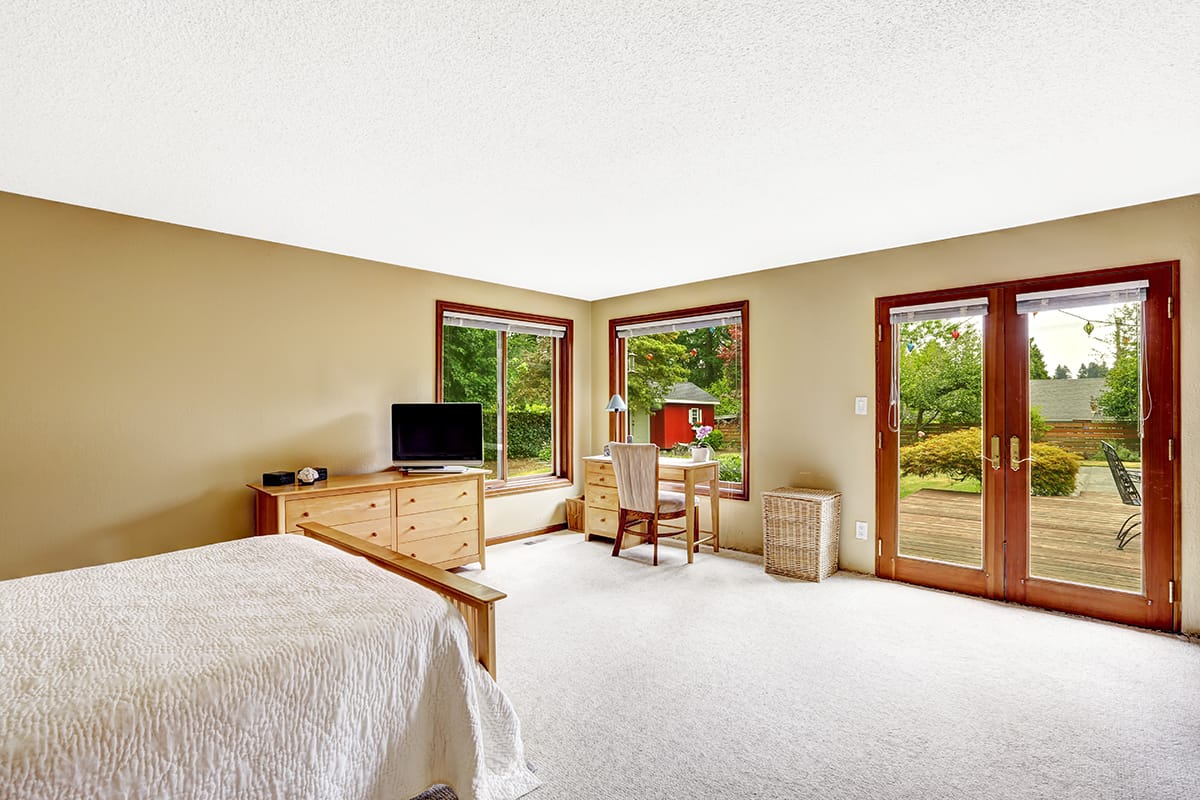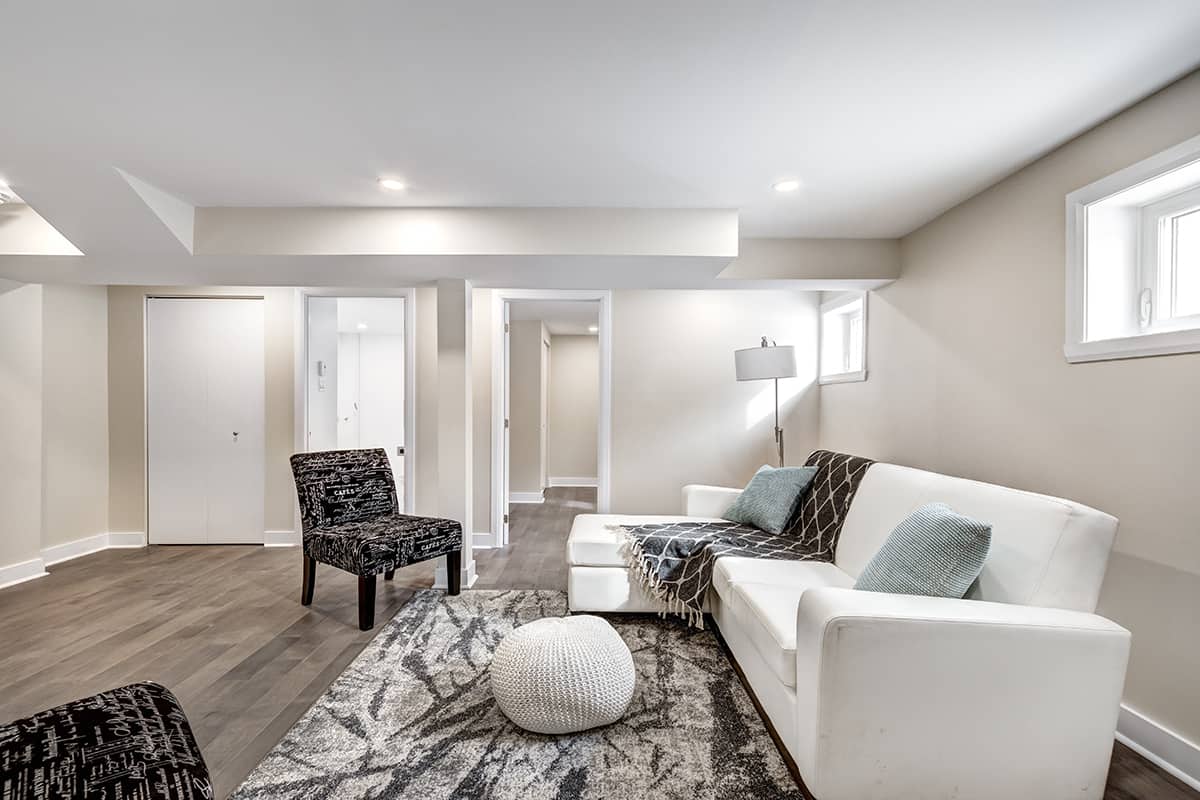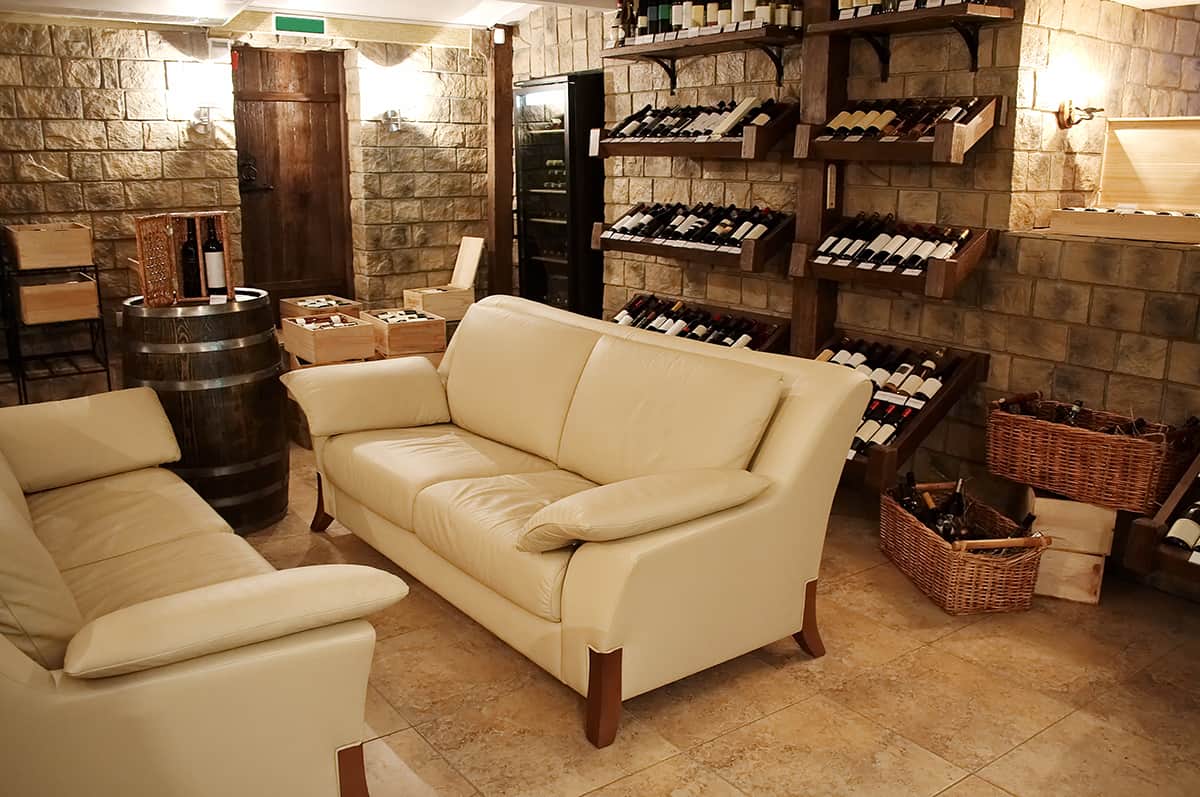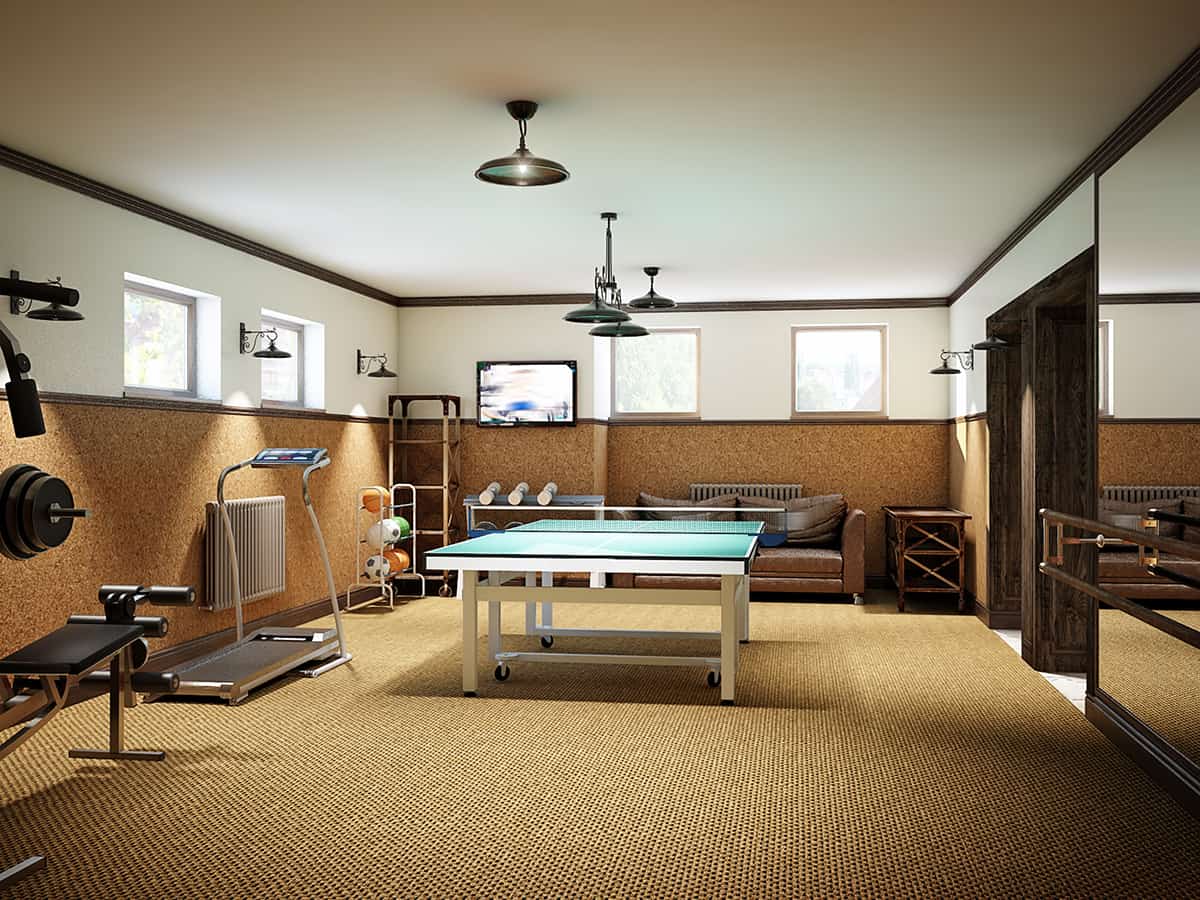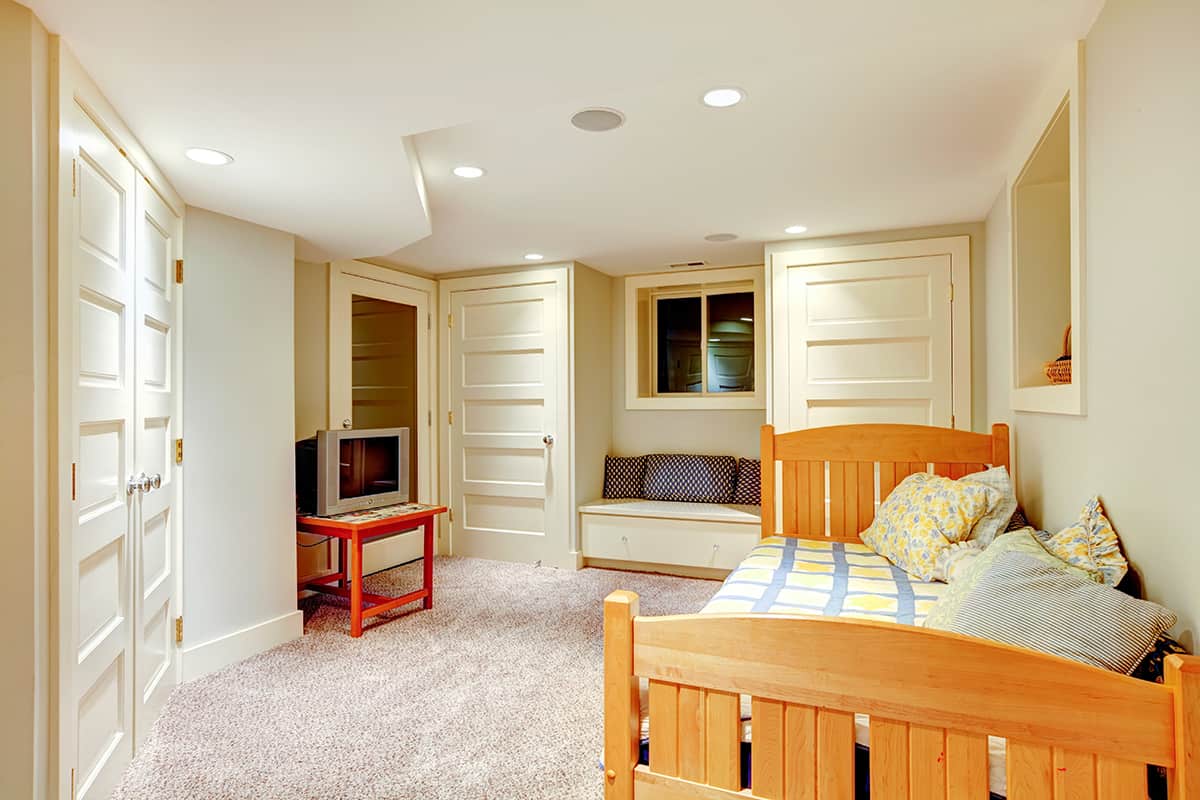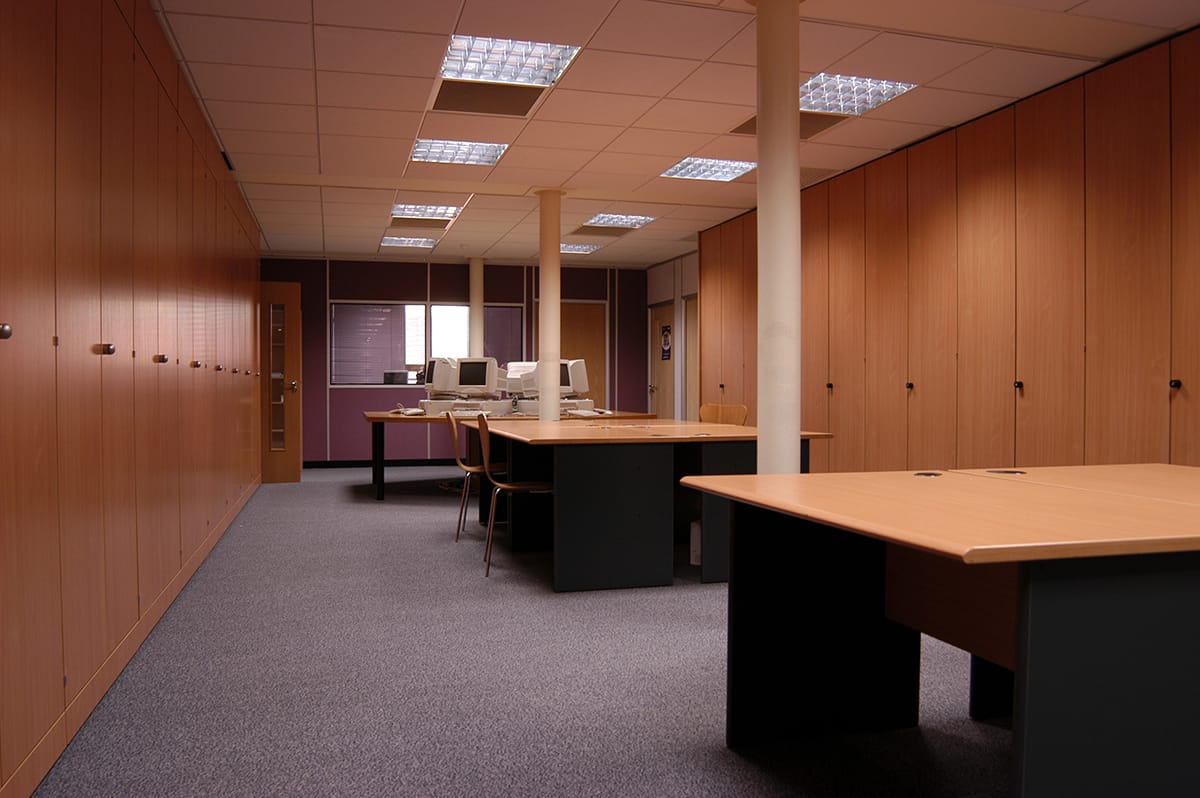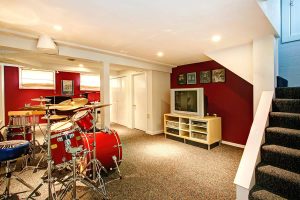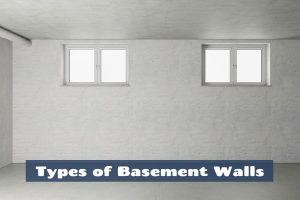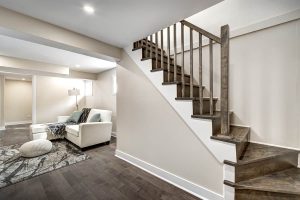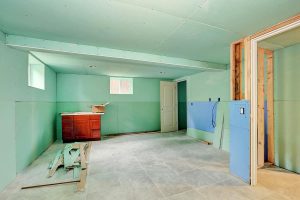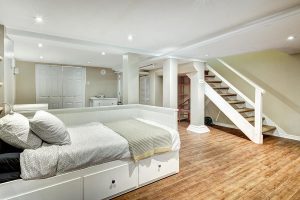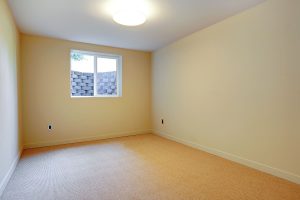It’s nice to have a basement where you can take a shelter, set up a home office, or store out-of-season items. And if you’re going to renovate your basements or looking for ideas for some types of basements for your new home, this guide is for you.
Here, we’ll discuss the many basements types and what you can do with your basements.
Walkout basement
A walkout basement is a type of building in which the basement is built on a slope of the land. Walkout basements may also refer to a finished lower level with a door and windows that open to the outdoors, but it doesn’t necessarily have to be at an angle.
In most cases, walkout basements allow for more natural light, which makes them easier to decorate and use as living areas.
This can be especially beneficial if your house has no windows on its lower level or you want to make good use of all available space without having to build out more rooms above ground level.
Daylight basement
A daylight basement is built into a sloping lot. It’s called a walk-out basement because you can exit the unit directly to ground level, with no stairs required. Daylight basements are also known as “crawl spaces.”
Typically, they consist of one or more large rooms with high ceilings and windows that let in natural light—ideal for living spaces such as living rooms and bedrooms.
This type of basement has become incredibly popular over the past decade due to rising real estate prices in many areas around the world.
Since daylight basements are so spacious and open, they’re often used by owners who want some extra space without having to pay for a whole new house! You’ll typically find them on older homes that have been renovated into rental units or used for home offices or workshops for homeowners who live above them/
Lookout basement
A lookout basement is a type of basement that has its outside wall open to the outdoors. A typical example would be a home with a sloping lot, and the basement level is at ground level with windows to the outside.
The main advantage of this type of basement is that it can provide extra living space, especially if you have a small yard or no yard at all. The drawback is that you’ll lose some privacy because people passing by will be able to see into your backyard.
Cellar
A cellar is a basement that is partly or fully underground. A cellar is not usually a habitable space, although it can be if the area is large enough and/or has proper ventilation.
It’s usually used for storage because it tends to be dark, damp, and has bad smells. Sometimes cellars have dirt floors that are wet and muddy after rainstorms.
English basement
The English basement is a type of cellar or basement that has windows and natural light. This type of basement is usually found in older homes in urban areas, but it can also be found in larger homes with multiple units. This type of space is sometimes called a garden-level apartment or an inhabited mezzanine.
The English basement was common in the United States at one time, but it isn’t as common today because people realized that there were many benefits to having an unfinished storage space below ground level.
The main benefit to this style of basement is that you won’t need as much insulation because there’s already some natural insulation provided by being below ground level; however, you’ll still need to put down carpeting or flooring so that your family doesn’t feel like they’re walking on dirt all day long!
Slab-On-Grade Basement
A Slab-On-Grade basement is a unique type of foundation that differs from traditional basements. Instead of being situated below ground level, it is built directly on the ground with a concrete slab as its base. This design eliminates the need for basement walls or a below-ground space, making it an ideal choice for areas with high water tables or regions prone to flooding.
One of the primary benefits of a Slab-On-Grade basement is its cost-effectiveness. The construction process is simpler and faster compared to traditional basements, as it requires less excavation and fewer materials. Additionally, this type of basement offers excellent stability and is less susceptible to issues like mold, mildew, and insect infestation, which are common in underground basements.
From a design perspective, Slab basements provide a seamless transition between indoor and outdoor living spaces. They are often used in modern home designs that emphasize open floor plans and natural light. While they don’t offer the additional underground space of traditional basements, they can be integrated into the home’s design in creative ways, such as sunken living rooms or lower-level family rooms that open directly to outdoor patios.
Environmentally, Slab-On-Grade basements have a smaller footprint and can be more energy-efficient. They often require less heating and cooling due to their integration into the home’s main structure and their direct contact with the ground, which provides natural insulation.
What to Use a Basement For
Depending on your lifestyle and needs, you may find that you need the extra space in your basement for many purposes.
When you’re choosing what purpose to use your basement for, make sure that it’s one that makes the most sense for your lifestyle.
If you enjoy working on projects in the basement, then use it as a workspace. If you’re good at painting or other artistic pursuits, then turn that space into an art studio and start making art!
Whatever purpose you choose for your basement space can be a great opportunity to get creative and have fun while also using an otherwise unused part of your home.
To host large gatherings
A basement can be a great place to host parties and family gatherings because it often comes with a large, open space or a spacious finish.
The room is usually comfortable because it’s usually private, and the area is often quiet. The area is also generally large enough that there’s plenty of room to move around and dance, as well as set up tables and chairs for dining. In some cases, the basement may even come with a bathroom nearby!
To serve as an extra living room or family room
If you want to add another living room to your home, consider using your basement as a living room. Basements are great for this because they’re typically large enough to accommodate multiple people without feeling cramped. A finished basement also has enough space that you can store furniture and other items in other rooms of the house when not in use, so it’s easy to keep things organized.
A finished basement is especially useful if you have kids or pets who will be spending time down there—they’ll need somewhere comfortable where they can relax while watching TV or doing homework, after all!
An unfinished basement can also be used as a living room, but there may not be enough light coming through windows aboveground to make it feel bright and open during daytime hours—plus, unfinished basements may lack insulation from cold drafts from outside air infiltration (and heat loss) during winter months.
To work or study away from the rest of the house
Basements can provide a quiet place to work or study. Because they are usually away from the rest of the house, they tend to be less noisy than other areas.
This is especially useful if you live in a house with roommates and want to study. You won’t have to worry about other people talking or making noise while you are trying to focus on your work.
To set up a private gym
A basement can be used as a private gym. If you’re looking to up your workout game, setting up a good home gym is something that could take up a lot of space in your house.
You don’t have to worry about that when you get a basement because it’s already there! Just make sure to install high-quality flooring so that it doesn’t become slippery when wet and slippery when dry.
You can store all your exercise equipment in the basement and even use it as an area for stretching or warming up before starting an activity.
Also, make sure to have a shower or bathroom nearby so you don’t have to run upstairs every time you want to wash off the sweat from working out or change clothes after finishing an activity. Having some extra towels on hand will also help with keeping the space clean and tidy!
To store out-of-season items
A basement can be used to store seasonal items and extra belongings that are not needed on a daily basis. This includes holiday decorations and seasonal clothing, as well as other things you have in your home but don’t regularly use (like sports equipment).
Be sure to label everything so that it’s easy to find when you need it. If possible, make sure your basement is well-ventilated so that mold doesn’t grow on any of the stored items.
To create an additional bedroom
In addition to being a great place for exercise, a basement can also be used as an additional bedroom. This can provide you with an improved quality of life and allow you to remain in the home that you love.
A basement finishing system can effectively convert your basement into a cozy and inviting bedroom, adding practical living space to your home
Basement conversions are also a good use of space, which is something that everyone appreciates. It’s rare to find any part of your house that’s completely useless and never gets used at all, so why not turn it into something useful?
Basement conversions tend to add value to your home, which means that if you ever decide to sell your property (which happens more often than we would like), then it could make up for any costs involved during construction time!
A basement conversion is usually an alternative choice when downsizing or moving isn’t an option. For example, many older couples prefer staying together even if they have separate bedrooms due to their health issues – this means they need somewhere where they can both live comfortably!
To make an entertainment room
A basement can be used to create an entertainment room.
- Make it a theater room.
- Make it a game room.
- Make it a movie room.
- Make it a music room, dance hall, or teen hangout spot.
To be a home office
A basement can be used as an office space if you work from home. If you have a large enough basement, this can be a great way to separate your work life and personal life.
It’s also a good way to manage your hours because it’s easier to separate the two if they are in different rooms. Finally, working from home is becoming more popular and could save money on things like transportation costs and parking fees.
To host guests
A basement is an ideal place for visitors. It’s a private area where they can relax, away from the bustle of the home.
